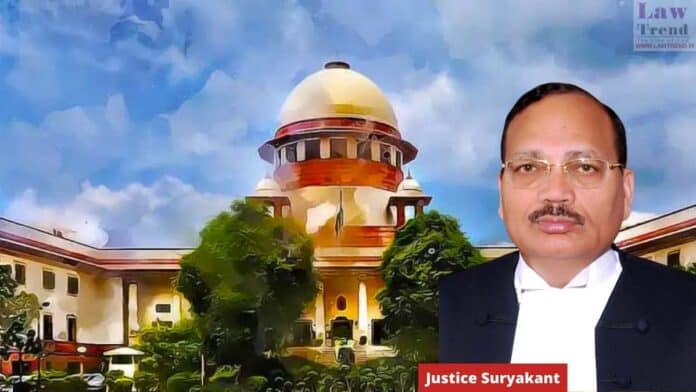The Union government has formally initiated the process of appointing the next Chief Justice of India (CJI). The law ministry on Friday requested the incumbent, CJI Bhushan R Gavai, to recommend his successor ahead of his retirement on November 23.
This action sets in motion the official procedure for the elevation of Justice Surya Kant, the Supreme Court’s senior-most judge, who is in line to become the 53rd Chief Justice of India.
Justice Kant is expected to assume office on November 24 and will have a tenure of approximately 14 months, retiring on February 9, 2027.
The ministry’s request adheres to the long-standing convention and the Memorandum of Procedure (MoP) for judicial appointments. This procedure, which stems from the 1993 Second Judges Case, dictates that the law ministry requests the incumbent CJI’s recommendation about a month before their retirement. The outgoing CJI then formally recommends the senior-most judge deemed “fit to hold the office” roughly 30 days before demitting office.
Following CJI Gavai’s recommendation, the government is expected to issue a formal notification appointing Justice Kant. As the designated successor, Justice Kant will soon begin participating in key administrative decisions alongside the incumbent CJI.
A Profile of the Incoming Chief Justice
Justice Surya Kant’s journey to the nation’s top judicial chair began in a modest town in Haryana. Born on February 10, 1962, in Hisar, he earned his law degree from Maharishi Dayanand University, Rohtak, in 1984. His commitment to legal scholarship continued even after joining the judiciary, as he completed his LL.M. from Kurukshetra University in 2011, securing a First Class First.
After beginning his practice at the Hisar District Court in 1984, he moved to the Punjab and Haryana High Court the following year. In July 2000, at just 38, he became the youngest person to be appointed Advocate General of Haryana.
His judicial career began in January 2004, when he was elevated as a judge of the Punjab and Haryana High Court. He later served as the Chief Justice of the Himachal Pradesh High Court in October 2018 before being elevated to the Supreme Court of India in May 2019, alongside Justice Gavai.
In his six years at the apex court, Justice Kant has authored over 300 judgments and been part of several critical constitution benches. These include the landmark cases concerning the abrogation of Article 370, the validity of Section 6A of the Citizenship Act, and the minority status of Aligarh Muslim University, in which he penned a notable dissent.
He also headed the bench that granted bail to former Delhi Chief Minister Arvind Kejriwal in the CBI’s liquor policy case, while concurrently holding that his arrest by the agency followed due procedure.
Justice Kant is also a member of the five-judge bench reviewing the Supreme Court’s 2022 Vijay Madanlal Choudhary judgment, which upheld the sweeping powers of the Enforcement Directorate (ED) under the Prevention of Money Laundering Act (PMLA). Final arguments in that case are set to begin next month.
Beyond his judicial duties, Justice Kant serves as the executive chairman of the National Legal Services Authority (NALSA). In July, he launched the ‘Veer Parivar Sahayata Yojana 2025’, a first-of-its-kind scheme to provide free legal assistance to soldiers, veterans, and their families, calling it “a fulfilment of a constitutional duty.”




